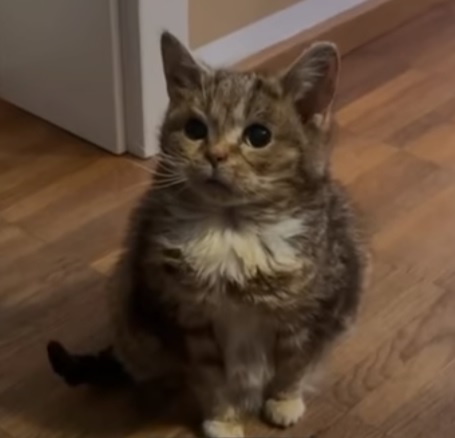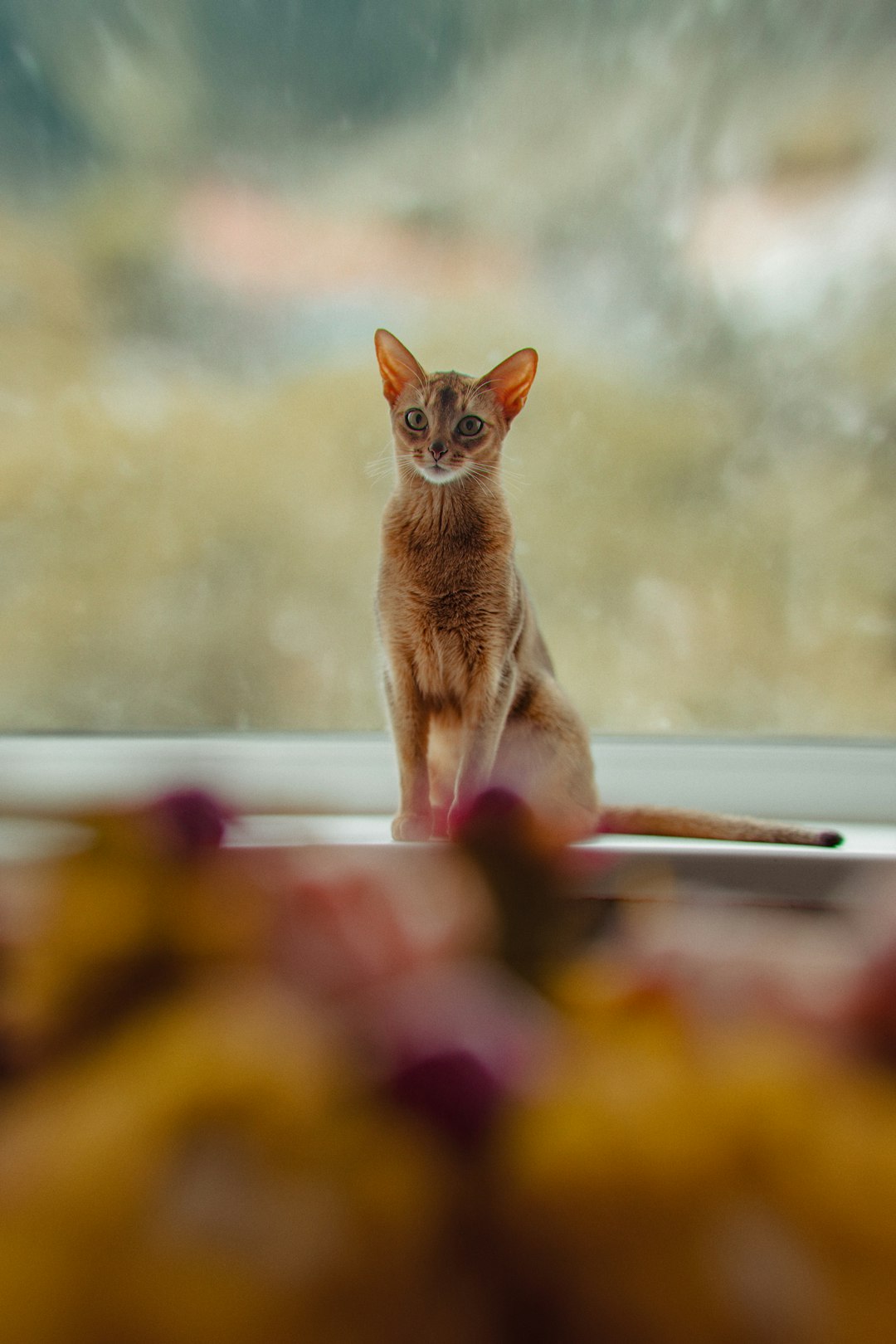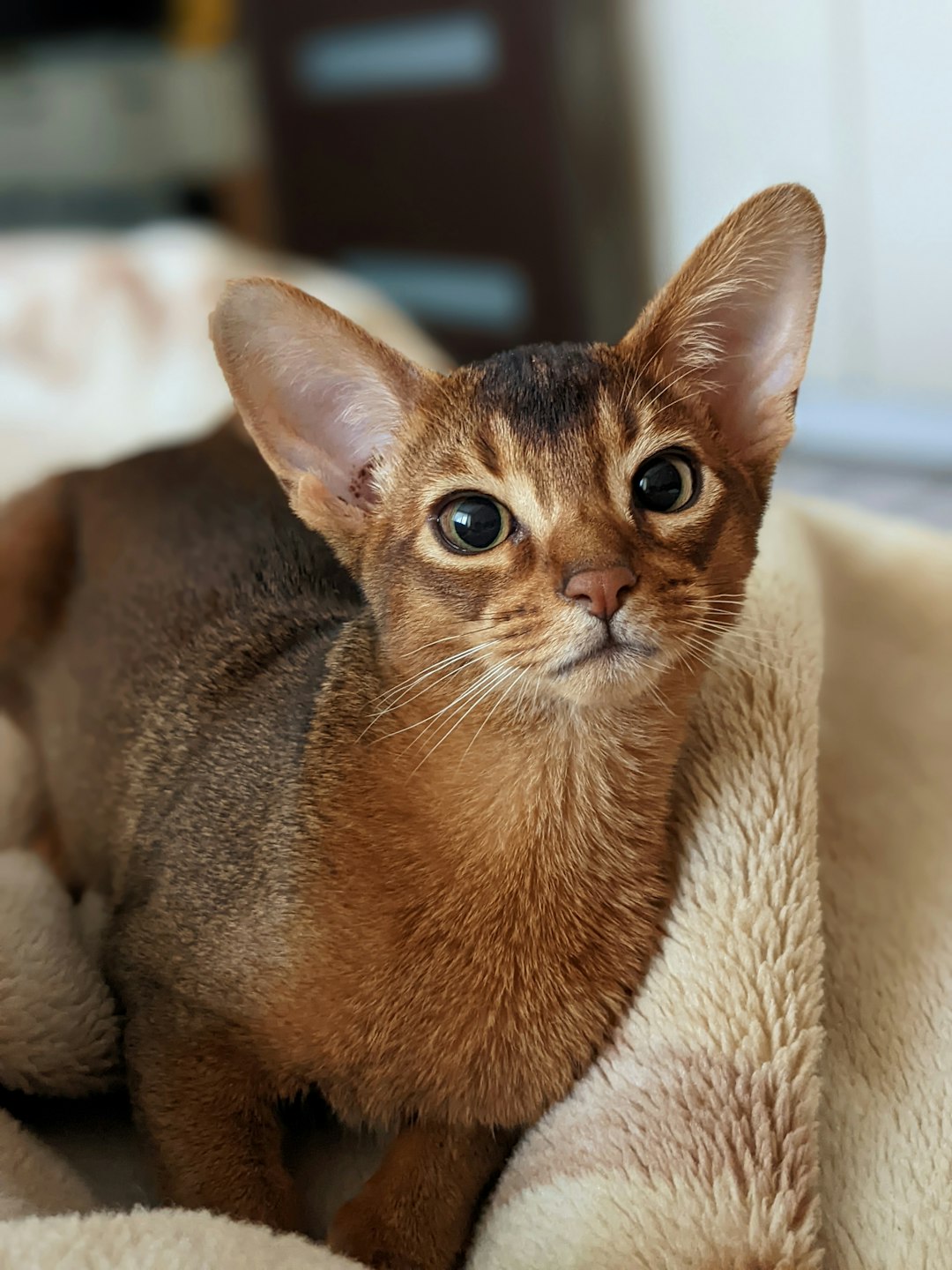When you think of cats, you probably picture regal felines lounging like they own the place (which, let’s be honest, they do). But have you ever met a Dwarf Cat? These pint-sized purring machines come with all the sass of a regular kitty but fit into your lap—and heart—much more easily! With their adorable little faces and quirky personalities, Dwarf Cats charm their way into our lives with just one head tilt. However, owning one isn’t all catnip and soft fur; their care needs can be a fluffy handful!
Introduction to Dwarf Cats
Ah, the Dwarf Cat, the feline equivalent of that pint-sized friend who can do everything their taller counterparts can — but with way less legroom. These adorable little masterpieces of fur challenge the notion that size matters! Why own a cat that needs a gym membership when you can have a cuddly, mini-version snuggling next to you?
What Makes Dwarf Cats Special?
- Miniature Marvels: They pack all the typical cat characteristics into a compact frame. Think of them as the “fun-sized” version of a regular cat!
- Playful Personalities: Don’t be fooled by their size; Dwarf Cats are often packed with personality — fun, mischievous, and ready to play!
- Attention Grabbers: Their cuteness can cause reactions similar to seeing a baby panda, so be prepared for endless compliments and “aww” moments.
In conclusion, Dwarf Cats are not just a joy to behold; they also bring an abundance of love and laughter into your home. Just be careful not to blink—you might miss one zipping across the room!
Physical Characteristics of Dwarf Cats
Dwarf Cats might be small in stature, but they sure pack a giant punch in the cuteness department! These pint-sized powerhouses come with some unique features that set them apart from the crowd. Here’s what you should know:
- Size: As the name suggests, Dwarf Cats are smaller than your average cat, usually weighing between 2-5 pounds. They’re perfect for those who want a furry friend but lack the space for a full-sized feline.
- Body Structure: These adorable critters often boast a stocky build with short legs – imagine a cat that skipped leg day at the gym! Their round faces and big, expressive eyes just add to their charm.
- Fur Types: Dwarf Cats can flaunt various coats, from fluffy to sleek, and colors that can range from classic tabby to striking calico. Who needs a rainbow when your Dwarf Cat can be one?
Here’s a quick comparison table summarizing Dwarf Cat features:
| Feature | Dwarf Cat Characteristics |
|---|---|
| Weight Range | 2-5 pounds |
| Legs | Short and stubby |
| Face | Round with big eyes |
| Fur | Varied types and colors |
If you’re looking for a companion that brings joy and smiles, look no further than the delightful Dwarf Cat!
Popular Dwarf Cat Breeds
Dwarf cats might be small in stature, but they pack a punch in personality! Here’s a rundown of some of the most popular Dwarf Cat breeds that will charm your socks off—if you’re wearing them, that is.
1. Munchkin
- Height: 5-7 inches
- Personality: Adventurous and playful
- Fur: All lengths and colors (just like your favorite candy store)
2. Napoleon (Minuet)
- Height: 6-9 inches
- Personality: Affectionate cuddle bugs
- Fur: Long or short, always snuggly
3. Bambino
- Height: 7-9 inches
- Personality: Energetic with a dash of mischief
- Fur: Hairless or sparse coat (taking “less is more” to a new level)
In the land of felines, Dwarf Cats are like the tiny superheroes—small enough to curl up in your lap, yet mighty enough to steal your heart. Remember, adopting one means a lifetime of adorable antics and a potential threat to your #1 snack stash!
Understanding Dwarf Cat Behavior
When it comes to our pint-sized pooches, or should I say “paws,” Dwarf Cats pack a punch of personality! Here’s what you can expect from these little charmers:
- Playfulness: Dwarf Cats thrive on playtime. Picture a tiny tornado of fluff zooming around your living room. They’ll turn any cardboard box into an adventure park!
- Affectionate Nature: These cats love their humans. Don’t be surprised if your Dwarf Cat follows you around like it’s your fluffy shadow—everywhere you go, they go!
- Curiosity: They’re like furry little detectives. Expect them to investigate every nook and cranny of your home. You might find them perched on top of your fridge, surveying their domain (spoiler: it’s probably just for the snacks).
- Vocalization: Dwarf Cats have few thoughts and a lot to say! Be prepared for a symphony of meows that would make even the most stoic human crack a smile.
In a nutshell, Dwarf Cats are loyal companions with a larger-than-life personality, wrapped up in a small, adorable package. Enjoy every mischief-filled moment!
Nutrition Requirements for Dwarf Cats
Feeding your Dwarf Cat is no small feat; after all, these pint-sized furballs have unique nutritional needs to support their mini stature. Here’s how you can keep your tiny tyrant happily munching:
- Quality Over Quantity: Opt for high-quality cat food rich in protein. Dwarf Cats need that extra boost to maintain their tiny musculature. Think of it like fueling a race car with premium gas rather than garden-variety sludge!
- Portion Control: Use smaller meals throughout the day. Think of it as a gourmet tasting menu, only with tuna and chicken instead of fancy cheeses. Portion sizes should be adapted according to their activity level. A couch potato Dwarf Cat will need less than a mini Olympic athlete!
- Hydration Station: Always provide fresh water. Since Dwarf Cats sometimes have the energy of a hyperactive toddler, keeping them hydrated is crucial. Remember, water is the magical elixir that keeps their adorable little bodies functioning.
- Treats with Caution: Yes, you can pamper your Dwarf Cat with treats, but avoid overindulgence. Too many calories can lead to health issues, and we’d hate for them to roll around like a fluffy ball of mischief!
Sprinkling in some humor and love with their meals pays off, leading to a happy, healthy Dwarf Cat that purrs for more!
Grooming and Maintenance Needs
Ah, the grooming needs of our adorable Dwarf Cat! Just like a Hollywood diva preparing for the red carpet, these pint-sized bundles of fluff require some pampering. Lucky for you, it’s not rocket science! Here’s what you need to know:
- Brushing:
- Short-haired Dwarf Cats need a quick scrub-a-dub once a week.
- Long-haired Dwarf Cats? You’ll get to brush them several times a week to avoid becoming a walking tumbleweed.
- Nail Clipping:
- Those tiny claws can still make a dent! Clip them every 2-3 weeks to keep your furniture safe from their pointy little charms.
- Bathing:
- A rare event! Only bathe your Dwarf Cat if they’ve managed to get into a sticky situation (and believe me, they will).
- Ear Cleaning:
- Check those little ears once in a while. Use a soft cloth and some vet-approved cleaner to ward off any gunk.
- Dental Care:
- Don’t forget that little grin! Brush those pearly whites regularly to keep the dentist away (or at least make them less judgmental).
Treating your Dwarf Cat to regular grooming means you score extra cuddles and fewer hairballs. It’s a win-win situation!
Creating a Safe Environment for Dwarf Cats
Safety first! Creating a safe haven for your adorable dwarf cat is essential because, let’s face it, they can be curious little furballs. Here’s a quick list to make sure your home is as safe as a cat can get:
- Hide Hazards: Tuck away cords, cables, and anything that screams “chew me!”
- Secure Windows: Install screens or keep windows closed. You wouldn’t want your dwarf cat to audition for a high-flying stunt, would you?
- Toxic Plants: Aloe? Lilies? Nope! Make sure your greenery is kitty-friendly.
- Small Objects: Dwarf cats can investigate like mini detectives, so keep small objects that can be swallowed out of reach.
To sum it up, safety is key for your lovable dwarf cat. A secure environment not only keeps them out of trouble but ensures you can enjoy their hilarious antics without a worry. Cat-proof your world, and watch your dwarf cat thrive!
Creating a Safe Environment for Dwarf Cats
Ah, the majestic Dwarf Cat—a pint-sized wonder that deserves a royal habitat! Your little furball may be mini, but their needs are still mighty. When it comes to creating a safe environment for your Dwarf Cat, think of it as turning your castle into a cozy cat-hedral.
Here are some tips to keep your Dwarf Cat feeling like royalty:
- Cat Towers: Invest in a plush cat tower. After all, every Dwarf Cat needs a throne!
- Hide the Hazards: Dwarf Cats can be curious (and a bit mischievous), so tuck away items like cords and small choking hazards.
- Safe Spaces: Create cozy nooks with blankets for those “I’m pretending to be a cave-dwelling feline” days.
- Toxic Plants: Know which houseplants are toxic. Dwarf Cats don’t need to learn the hard way that some greenery is off-limits!
In summary, your Dwarf Cat will flourish in a secure environment filled with fun and safety. With a little effort, you can transform your home into a Dwarf Cat paradise. Who knew being a pet parent could be this glamorous?
Frequently Asked Questions
What exactly is a dwarf cat and how do they differ from regular cats?
Ah, the mystical world of dwarf cats! These delightful little furballs are basically the mini-me versions of our regular feline friends. Imagine a cat that looks like it just finished a growth spurt but decided to skip the last few inches! Dwarf cats usually boast a genetic condition like achondroplasia, allow them to maintain a more compact size without compromising their cuteness. They might not be able to reach high cabinets, but they certainly have a knack for finding the coziest corners of your home and making themselves comfortable, as if they were born to be your new little guardian!
Do dwarf cats require special diets or care?
Oh, absolutely! Feeding a dwarf cat is much like preparing a gourmet meal for a picky toddler! While they can eat a standard diet, it’s crucial to ensure it’s packed with all the nutrients and vitamins that tiny tornado needs to stay lively and sprightly. Think premium cat food that would make gourmet chefs weep! Furthermore, their compact size means you need to monitor their weight like a hawk – one too many treats can turn your dandy dwarf into a hefty house cat. A sprinkle of love and a dash of veterinary guidance will have them prancing around like royalty!
Can dwarf cats interact well with other pets?
You bet your bottom dollar they can! Dwarf cats are often known for their social graces, charming both humans and fellow pets alike – picture a tiny feline extrovert at a party! They can easily warm up to dogs, other cats, and even the grumpy goldfish if introduced properly. Just keep in mind that their petite stature doesn’t mean they’re defenseless; they can stand their ground with surprising sass! Make sure your other furry friends understand that being small doesn’t mean being less fierce!
Are there any health concerns specific to dwarf cats?
Like those high-flying circus performers, dwarf cats do come with their own set of thrilling acts – health concerns! These adorable creatures can be prone to specific genetic conditions such as skeletal abnormalities and heart issues, mostly due to their unique dwarfism. Regular vet check-ups are non-negotiable, just like that morning coffee! Keeping a keen eye on their mobility, appetite, and behavior will help spot any red flags early. Remember, a healthy dwarf cat is a happy dwarf cat, so keep those tiny gymnasts in tip-top shape!



